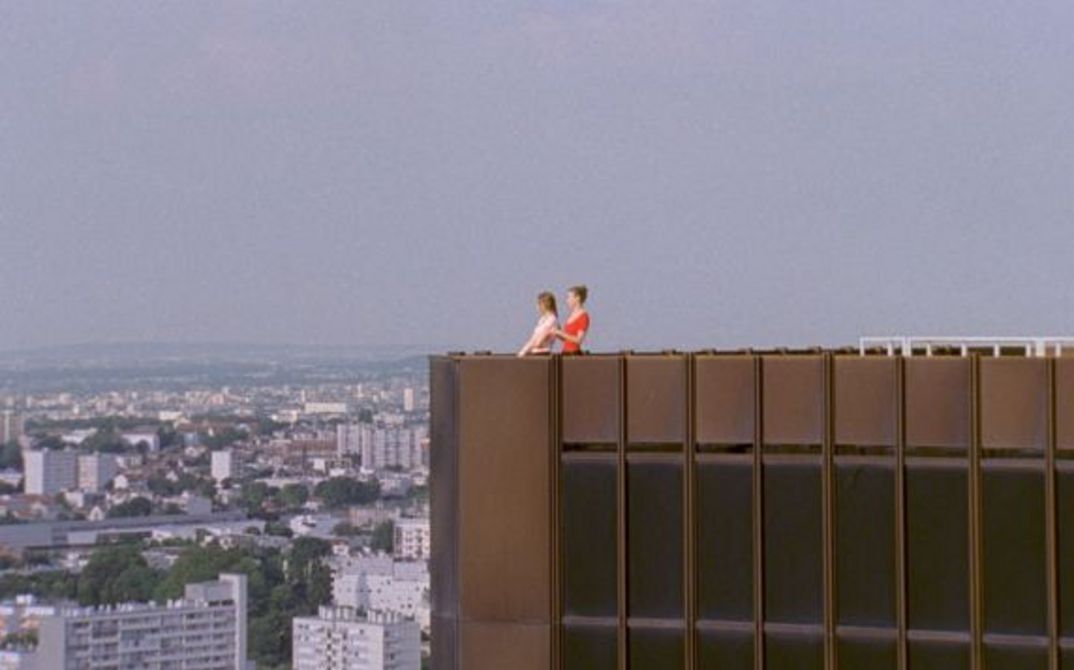LE PARC (The Park, Damien Manivel, France 2016, 2. & 7.12.) A young man and a young woman meet at a park on a summer's day for their first date. Initially shy, hesitant, and somewhat awkward, they gradually become closer. They wander over meadows, lie under trees, kiss in the undergrowth. He tells her about reading Freud, she tells him about sport. As evening arrives, he must leave and she remains in the park alone. During the text message dialogue that follows, night falls, an owl hoots, a park attendant appears – and the girl, and with her the film, starts moving quite literally in a different direction. Three non-professional actors and a park, day and night, light and dark – with simple means a story of boy meets girl is magically transposed into the realm of the fantastic.
SWAGGER (Olivier Babinet, France 2016, 3. & 6.12.) Eleven teenagers from the banlieue. They're growing up in Aulnay-sous-Bois, an inhospitable area of tower blocks, drug dealers, and armed gangs just 15 kilometers from Paris, where "the whites" live. Despite all the difficulties they face due to their backgrounds and surroundings, they want to move up in life. They speak astutely about their dreams and goals, their homes, their childhoods, their religions, about racism, school, TV series, being in love and having the right outfit. SWAGGER is a neither a report nor a social drama. Alongside the opportunity to reflect, the film offers the kids a stage to perform as themselves, with lots of music and choreography. One dances nonchalantly like Fred Astaire, another parades through the school in slow motion, decked out in fur. A film full of vitality, which leaves miserablism and naturalism behind.
MERCURIALES (Virgil Vernier, France 2014, 3. & 5.12.) Les Mercuriales is the name of two office towers in a suburb east of Paris that resemble the Twin Towers of New York. They once formed part of a large-scale urban planning project in the 1970s that was never completed. Now they stand in an brownfield site next to the city highway like a symbol of the crisis. Two young women who work there become friends and wander through the area together. Joane wants to become a dancer, Lisa comes from Moldova and invokes a "silent war" in Europe in voiceover. Just like the duo, the film, shot on 16mm, also drifts around, stringing together different snapshots of life, unconcerned with making sense in a direct way but rather with creating an atmosphere amplified by electronic beats in which myth, present and science fiction flow together.
LA FILLE ET LE FLEUVE (The Girl and the River, Aurélia Georges, Franc 2014, 4. & 7.12.) Nouk had already given up on everything, but then Samuel saves her from drowning and the two of them become a couple. When he dies in a bike accident, Nouk cannot accept the loss and attempts to make contact with the other side. She is supported in her task by a world-weary man (Serge Bozon). Due to a clerical error, the deceased Samuel still finds himself in painfully bureaucratic limbo, where he chats in animated fashion with the wife of Albert Einstein (Françoise Lebrun). A film inspired by Rivette which locates the fantastic in the everyday (and vice versa). The question of life after death relates both to the realm of the living and that of the dead.
PAULINE S'ARRACHE (Oh la la Pauline!, Emilie Brisavoine, F 2015, 4. & 6.12.) Pauline is concerned with much the same things as most teenagers: she's annoyed by school, completely in love with one of the boys there, and permanently arguing with her parents. But they're hardly typical: her mother is a former queen of the nightlife, her father is a transvestite homosexual. The two older siblings have already done a runner and it's only Pauline that’s still at home, where it's pretty frantic. The filmmaker, Pauline's half-sister, spent three years using her camera (supplemented with family videos from childhood days) to document both emotional explosions and introspective moments, as well as Pauline’s eventual emancipation. A tempestuous home movie, an intimate film diary, a complex family chronicle, told like a fairy tale: once upon a time… (bik)An event in collaboration with the Französische Filmwoche Berlin, the Film and Media Office of the Institut français Germany and ACID (Association du Cinéma Indépendant pour sa Diffusion). Thanks to Emilie Boucheteil, Anne Vassevière und Amaury Augé.
